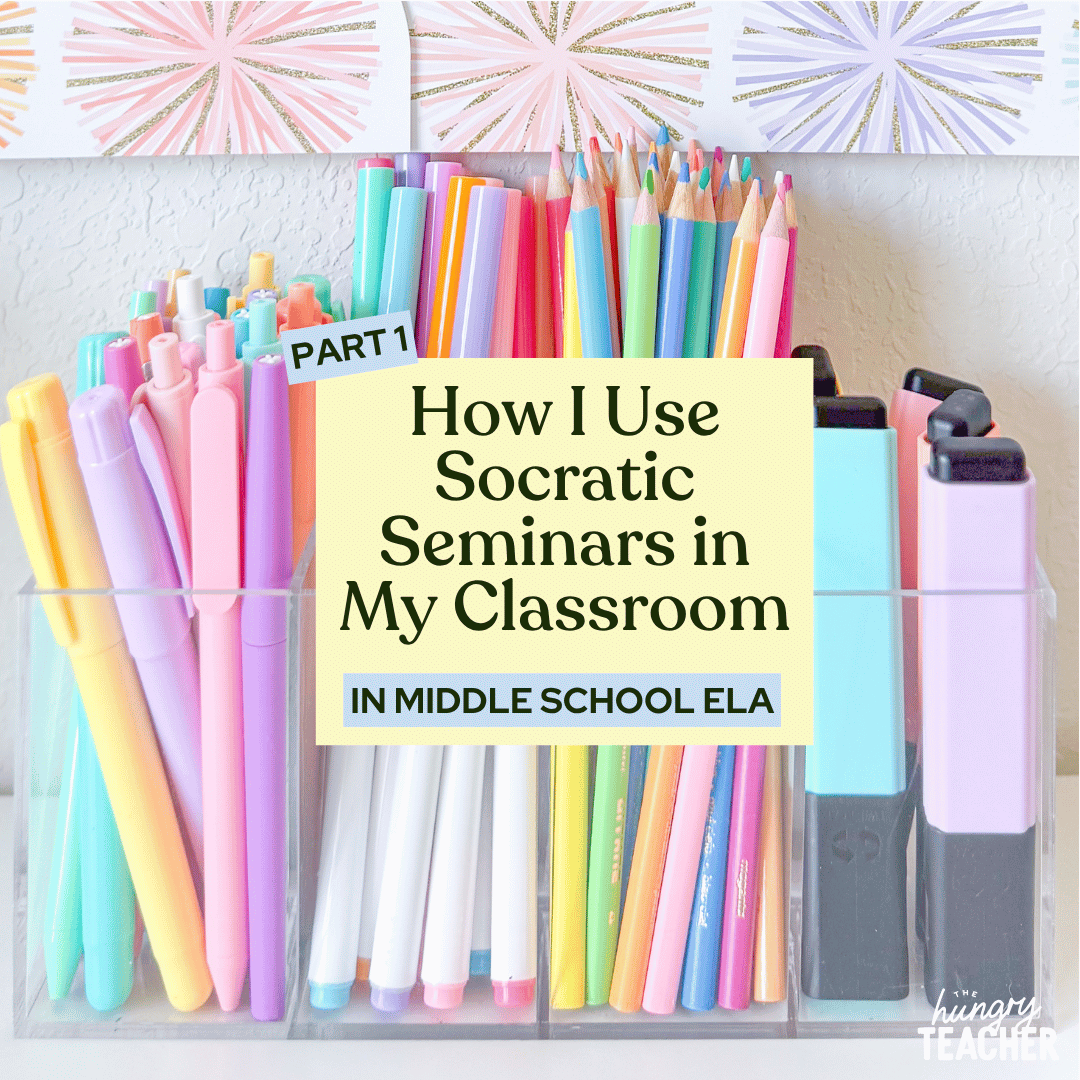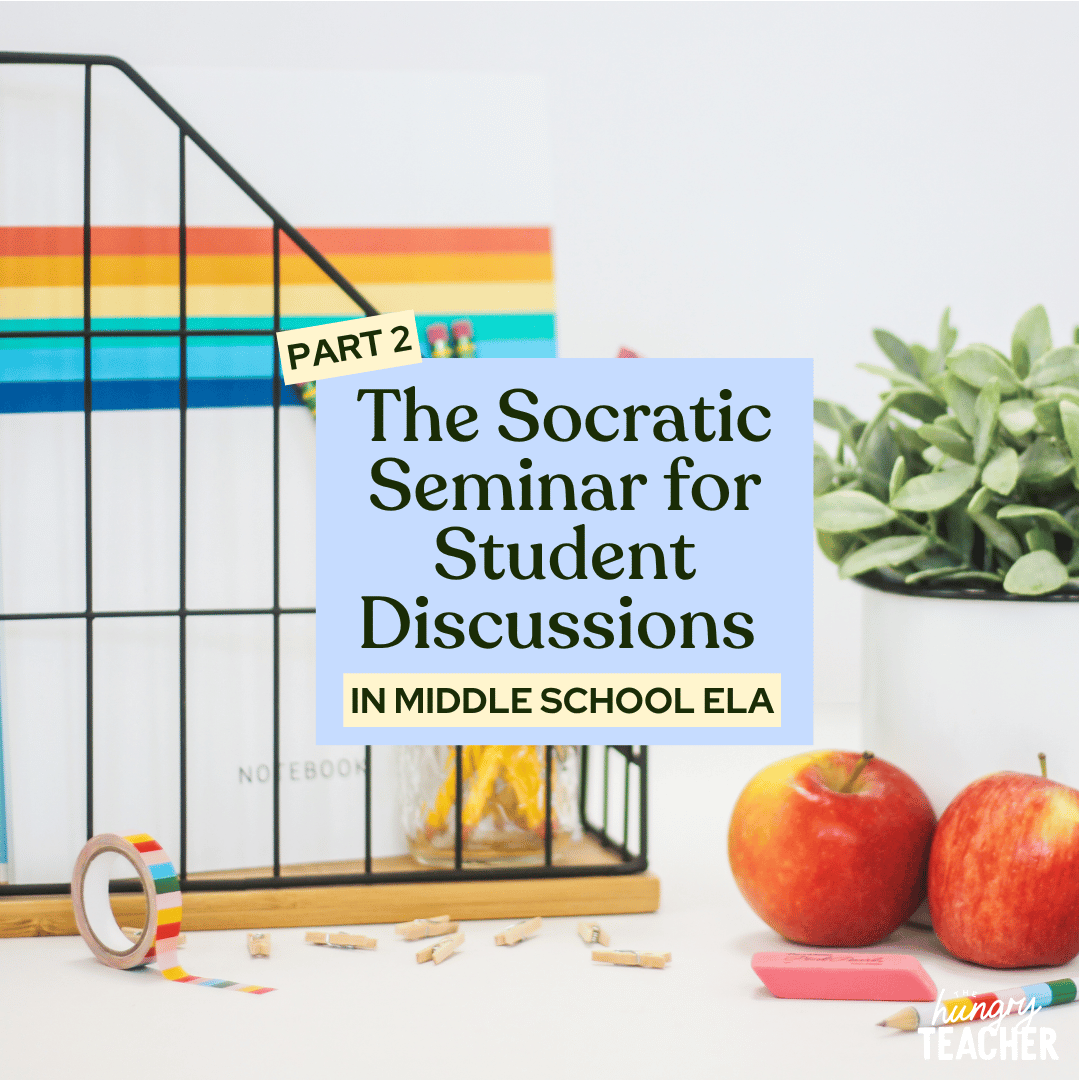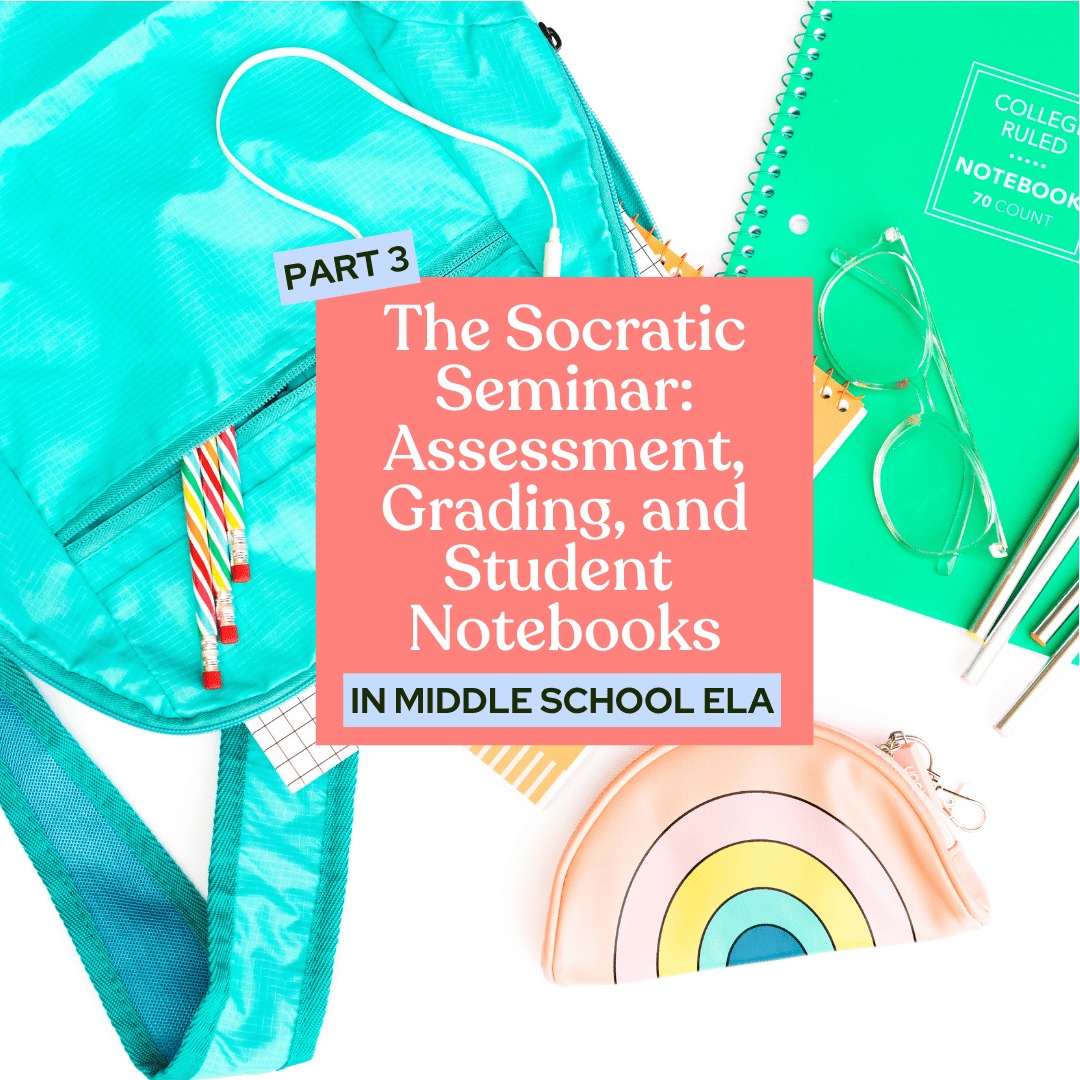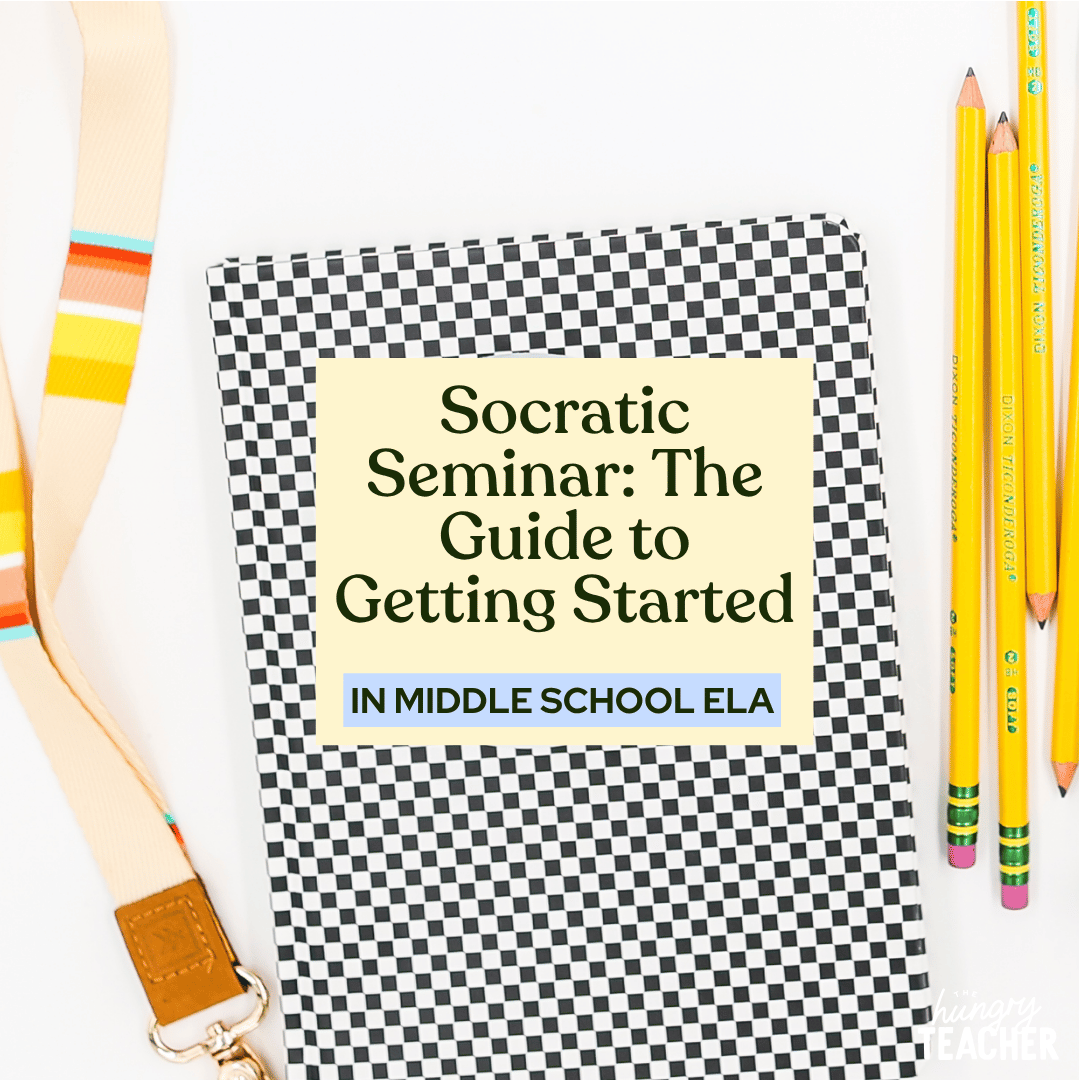hey friend!
I'm Martina.
I provide practical, time-saving strategies that actually work—so you can engage your students, teach effectively, and reclaim your time from the exhausting planning-grading cycle.
Browse Our ELA Resources
How I Use Socratic Seminars in My Classroom
(Part 2 of my Socratic Seminar Series)
In my previous post, I shared what a Socratic Seminar is and the research behind why it works.
In this post, I want to show you exactly how I use the Socratic Seminar model inside my classroom — and how it’s the foundation of all of my novel studies and reading units you’ll find in my TeachersPayTeachers store.
This post also answers the most common questions I get from teachers about how to actually make the Socratic Seminar work in an upper elementary or middle school ELA setting.
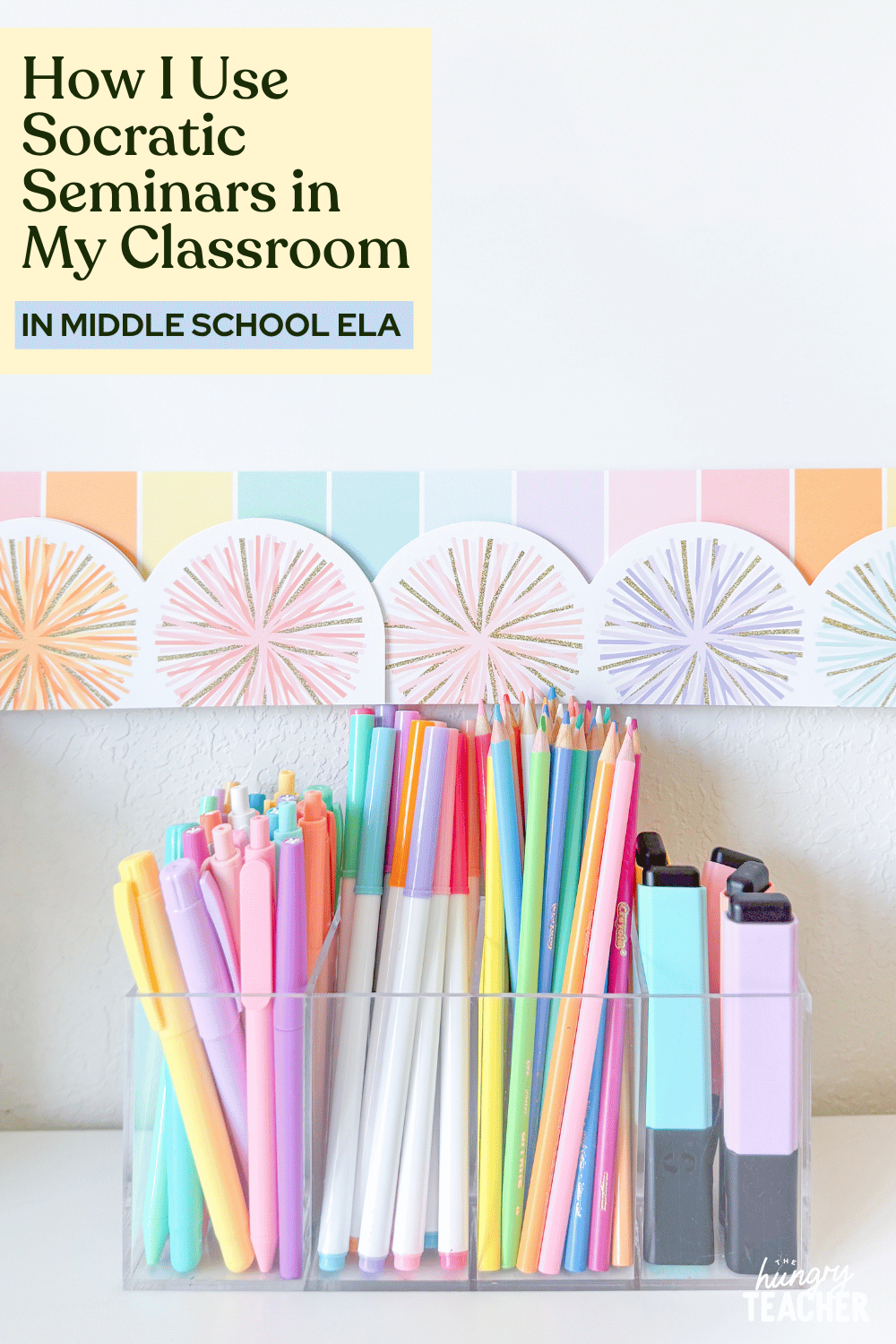
How the Socratic Seminar Looks Different in My Classroom
In my earlier post, I focused on the traditional Socratic Seminar — the kind you might see in a more formal classroom setting where students prepare notes, sit in an inner/outer circle, and are graded on participation.
While that version absolutely has its place, the Socratic Seminar you’ll see in my classroom looks a little different.
When I first started using this method in fifth grade, we were self-contained and had longer class periods (and, honestly, no set curriculum). Because of that flexibility, we held Socratic-style discussions almost every single day during our novel reading units.
Now that I teach middle school ELA — with shorter class periods and required novels — I use the same model, just in a more flexible, realistic way. In my 6th–8th grade reading units, we might only have a full Socratic Seminar once or twice a week, but the structure remains the same:
A guiding question while reading to give students a purpose,
A quick write to process their thinking,
An interpretive question for discussion, and
A chance to revise their writing using the ideas shared during the seminar.
No matter the schedule, this structure keeps reading, writing, and discussion connected — and it’s the foundation for every novel study I create.
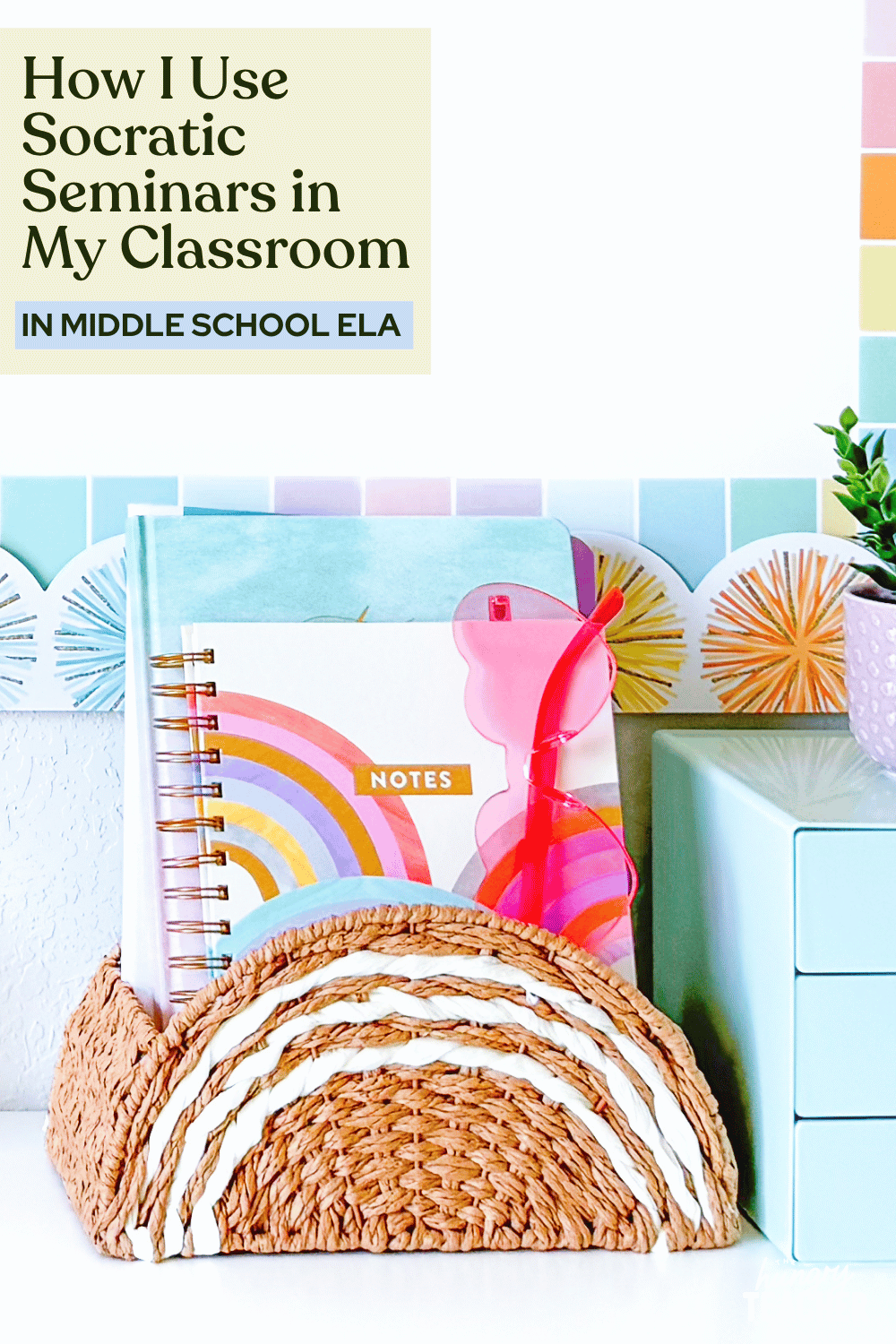
A Typical Socratic Seminar Reading Unit Lesson
Here’s what this looks like in action, using Out of the Dust as an example from my 6th–8th grade reading unit.
Each class period follows a similar flow:
Hook Question
Start with a quick “hook” question to get students thinking about the theme or concept of the day’s reading.Read-Aloud
I read the novel aloud (yes, even in middle school!) because I believe hearing the text together builds community and comprehension.
During the read-aloud, I pause to:Ask short comprehension questions to check understanding,
Discuss vocabulary in context, and
Let students share brief insights or predictions.
Quick Write to the Guiding Question
After reading, students label their notebooks (e.g., Out of the Dust Response 3 – 11/12/24) and write a short 4–5 minute response to the guiding question.
I have them draw a line underneath this section so there’s room for a second response later.Socratic Seminar (Interpretive Question)
Then I ask the interpretive question — one that requires deeper thinking and can’t be answered with “yes” or “no.”
I remind students: “You don’t have to agree, but you do have to support your ideas with reasons or text evidence.”Instead of rearranging the room into circles, we stay in our regular seating (which is already grouped for collaboration). The goal is authentic discussion, not perfect logistics.Charting Student Thinking
While students talk, I chart their ideas on the board. It’s messy, fast, and sometimes chaotic — but it helps us visualize how their thinking connects and evolves. These charts become reference points when they revise their responses later.Final Write
After discussion, students draw a line under their quick write and spend 8–10 minutes revising their answer to the interpretive question.
They use classmates’ ideas and discussion notes to deepen or clarify their thinking.Share-Out
Finally, students share their final responses aloud — connecting their written work to the class discussion.
This rhythm — read, write, discuss, revise — is what drives every novel study I create.
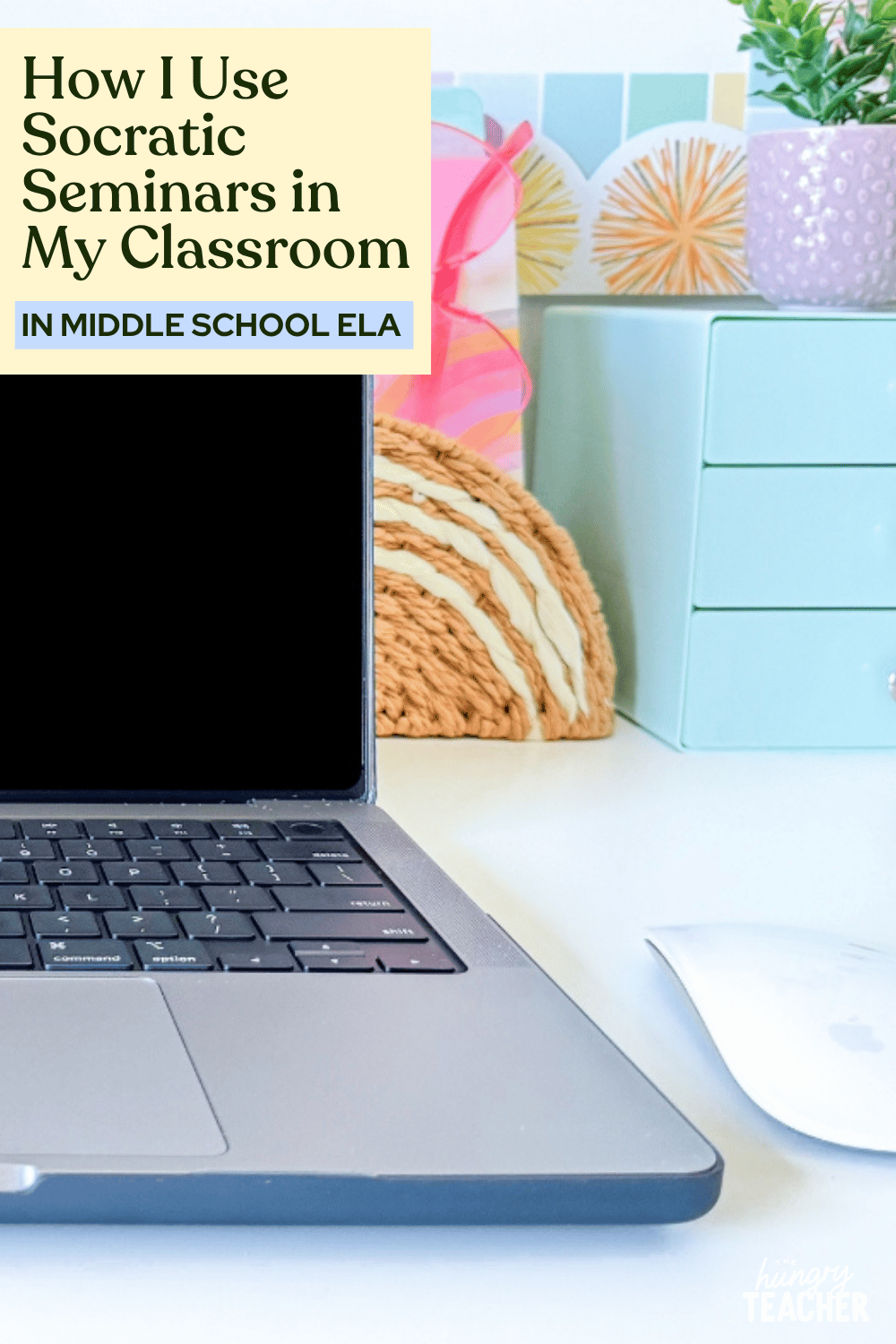
Why the Socratic Seminar Works
At its core, the Socratic Seminar gives students a reason to think out loud.
The guiding and interpretive questions are aligned to the novel and to the ELA standards, but they’re designed to feel authentic — to make students curious, opinionated, and engaged.
During seminars, my only job is to facilitate by charting their thinking and nudging them deeper when needed. Students lead the conversation, reference the text naturally, and learn from one another’s perspectives.
This process helps them:
Strengthen comprehension and critical thinking,
See multiple viewpoints,
Write with more evidence and depth, and
Develop confidence speaking about literature.
How the Socratic Seminar Shapes Reading Responses
One of the biggest benefits of this model is how it transforms student writing.
Because students hear a wide range of perspectives before revising, their final reading responses are always more thoughtful, text-based, and analytical than their first drafts.
You’ll start to notice a shift: instead of “surface-level summary” responses, students begin using words like theme, conflict, and motivation naturally in their writing.
Updates to My Reading Units
Over the years, I’ve refined these Socratic Seminar units to make them even easier for teachers to use — especially in middle school.
Here’s what’s new:
Display slides for every guiding and interpretive question — no more “Wait, what was the question again?”
Suggested answers for comprehension questions — not for memorization, but to support teachers (especially if it’s your first time teaching a novel).
Optional vocabulary lists with five words per lesson and editable templates for student-created vocabulary pages.
Digital reading and writing notebooks for 1:1 classrooms or distance learning.
These updates make it possible to run a complete, discussion-based reading unit whether you teach in person, hybrid, or fully digital.
Why I Keep Writing About the Socratic Seminar
I’ve been creating Socratic Seminar–based reading units for nearly a decade.
They’ve evolved alongside my teaching, but the goal has always stayed the same: help students think deeply about literature through discussion and writing that feels real.
I now have over 40 complete Socratic Seminar–based novel studies across fifth through eighth grades. Each one includes:
Full lesson plans with guiding and interpretive questions
Quick writes and reading response templates
Teacher rubrics and example anchor charts
Digital + print versions
And pacing guides that adapt to any schedule
You can explore them all here:
→ Upper Elementary Socratic Seminar Reading Units
→ Middle School Socratic Seminar Reading Units
Related Posts
Want a sneak peek at teaching The Hungry Teacher way—with support, structure, and strategy?
When you join the waitlist for The Hungry Teacher’s Hub membership, you get three free classroom-ready resources: a theme unit, an expository writing unit, and a grammar unit introducing mentor sentences. Plus, you’ll get immediate access to a selection of exclusives from the Hub, including editable sub plans, pacing guides, and more.
No strings attached. Just resources you can use right now—and a heads-up when the Hub opens.
3 Free Middle School ELA Units—yours to keep!
JOIN THE WAITLIST + A FREE GIFT
Where to next, line leader?
Welcome to The Hungry Teacher! We create resources that are easy to use, practical, and get results. Teach with confidence—and make it home before dinner.
xo, the hungry teacher
